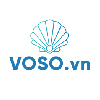TTO - On the afternoon of February 10, Tuoi Tre newspaper coordinated with the Ministry of Agriculture and Rural Development (MARD) and the People's Committee of Bac Lieu province to organize a workshop with the theme: Developing a model of "fragrant rice - clean shrimp" in the region Mekong.
Overview of the seminar with the topic: Developing the model of "Scented rice - Clean shrimp" in the Mekong region – Photo: QUANG DINH
Attending the workshop were Mr. Le Minh Hoan - Minister of Agriculture and Rural Development; Mr. Tran Thanh Nam - Deputy Minister of Agriculture and Rural Development, Mr. Lu Van Hung - Secretary of Bac Lieu Provincial Party Committee; representatives of leaders of General Departments, Departments and Departments of the Ministry of Agriculture and Rural Development, leaders of Mekong Delta provinces, trade counselors in EU countries, Korea, Saudi Arabia... Leaders of People's Committees of provinces and cities in the Mekong Delta region, together with 150 guests are cooperatives, farmers, experts, businesses... in the field of agriculture.
Tuoi Tre newspaper was attended by journalist Le The Chu, editor-in-chief of Tuoi Tre newspaper. có sự tham dự của nhà báo Lê Thế Chữ, tổng biên tập báo .
Speaking at the opening of the workshop, journalist Le The Chu emphasized the impact of climate change on the Mekong Delta, especially on agricultural/rice production leading to the vulnerability of 17.3 million farmers. mainly smallholder farmers and the poor.
The Mekong Delta is currently one of the four deltas in the world most affected by climate change and sea level rise. Failure to adapt will affect food security and people's lives not only in the region but also across the country.
But in the midst of difficulties, there are still opportunities. And in these early days of the new year, we are here to learn, share and discuss how to develop a very good and very potential adaptive model for climate change, which is the rice model. - shrimp. This is not only a model to help farmers continue to stick with the Mekong, the West and the Mekong Delta, but also have the conditions to build the specialty agricultural product brands of this land in the future.
According to journalist Le The Chu, with the form of natural farming, less use of chemicals in farming, with high-quality shrimp and rice varieties, it will create high-class shrimp-rice products in the "rice" orientation fragrant - clean shrimp". That is the premise for these products to access high-end markets, thereby enhancing the value of agricultural products.
The coastal provinces of Ca Mau peninsula have advantages in producing organic agricultural products thanks to the ecosystem of shrimp - rice, shrimp - forest, rice - fish... According to the Department of Crop Production, if there is an irrigation system, It is possible to increase the shrimp-rice rotation by 100,000 hectares and consolidate the existing shrimp-rice area of about 150,000 hectares. Rice products in this region can enter the market segment of specialty rice with the highest price in the world market today.
However, the development of agricultural production in coastal areas is still facing many challenges that need to be grasped and have effective solutions. Investment in irrigation must be said to be key for the coastal provinces of Ca Mau peninsula to respond to climate change and develop sustainable agriculture.
Rice varieties for shrimp-rice areas and shrimp varieties for shrimp farming need special attention. Rice varieties suitable for organic farming in the shrimp-rice model need to be paid attention to perfecting the legal system on seed copyright, the 3-level seed production and supply system.
Shrimp rice production is not only a great adaptation model to the challenges and threats of climate change, improving the livelihoods of farmers in the region, but also a huge opportunity to build a brand for the local community. shrimp, for the grain of rice in the West.
"I hope that after today's event, the opinions of experts, scientists, managers, ministries, sectors, farmers, businesses, and commercial counselors... rice-shrimp farming model, there will be commitments from localities in linking and developing the rice-shrimp brand for the whole region, and there will be strong support and support from the Ministry of Agriculture and Rural Development to soon bring the "rice and shrimp" brand to life. fragrant - clean shrimp" to the domestic market and to the world!" - journalist Le The Chu emphasized.
According to the editor-in-chief of Tuoi Tre newspaper, today's rice-shrimp seminar is an important activity in the Green Mekong program that Tuoi Tre is conducting and will last for many years to come. Green Mekong, with the desire to become a forum on innovation and adaptation to climate change for the Mekong Delta region, will include many programs on trade promotion, investment attraction, advertising support and branding. localities, where regional linkage and development initiatives and ideas are discussed and implemented in practice.
"We chose this name because Mekong is a familiar and international term, which is the goal that Tuoi Tre wishes to contribute to bring the image of the Western region, fresh and high-quality products. from this region to the world, thereby building the image of a Green Mekong, a 'garden of the world' that is internationally known and recognized in the future", - journalist Le The Chu emphasized.
Minister of Agriculture and Rural Development Le Minh Hoan visited the rice-shrimp model at An Khang Agricultural Service Cooperative in Hong Dan district, Bac Lieu province on the morning of February 10 – Photo: QUANG DINH
Shrimp - rice is a smart model
Chairman of Bac Lieu Provincial People's Committee Pham Van Thieu emphasized that this is an important conference for the agricultural industry as well as for the entire Mekong Delta region, and it is also an honor and a favorable opportunity for Bac Lieu to exchange. , learning experience in developing these models.
Chairman of Bac Lieu Provincial People's Committee Pham Van Thieu speaks at the Workshop – Photo: QUANG DINH
With the shrimp-rice model, Mr. Thieu affirmed that this is a sustainable, effective model, a 'smart' model to create clean products, in accordance with GAP process, helping farmers to apply farming methods. Prevention and control of epidemics using less fertilizers, pesticides, etc. Thereby improving the value and quality of products and competitiveness in the market. "This is a very favorable condition to develop the model of 'fragrant rice - clean shrimp' of Bac Lieu province and the Mekong Delta region," said Mr. Thieu.
According to Mr. Ho Quang Cua, the father of the ST25 rice variety, won the world's best rice award: growing in square shrimp will increase the value of both the rice grain and the shrimp - Photo: QUANG DINH
However, Mr. Thieu said that in reality and in the long term, the shrimp-rice model still faces many difficulties, especially climate change, sea level rise and recently drought and saltwater intrusion are the main problems. a real threat to the sustainable socio-economic development of the Mekong Delta in general and Bac Lieu province in particular. “The source of quality shrimp seed has not been interested by farmers, the water environment is at risk of pollution, and diseases on farmed shrimp are happening more and more... leading to unsustainable development, so the economic efficiency is average. The value of this model for many years has been low, not commensurate with the potential and advantages of the region," said Mr. Thieu.
Many businesses participated in the workshop with the desire to create a chain of links in the production of "clean fragrant rice and shrimp" – Photo: QUANG DINH
According to Mr. Thieu, today's seminar is a very good and useful forum, facilitating exchanges and discussions with speakers, scientists, managers, businesses, cooperatives... from which to draw conclusions. Lessons learned, properly assess the limitations and existence of the rice-shrimp model in the context of climate change. "So that after this workshop, we can work together to solve, propose solutions to overcome difficulties and limitations of the model, remove bottlenecks and bottlenecks"... and bring economic efficiency, improve high income for farmers,” said Mr. Thieu.
The President of Bac Lieu province also hoped that the delegates would have many ideas and questions for the speakers and scientists to properly assess the shortcomings and limitations of the model and jointly solve, propose solutions to overcome and have solutions. specific recommendations to the Government, ministries, central branches and provinces in the Mekong Delta on appropriate mechanisms and policies for the shrimp-rice model to truly become an effective "smart" model. high and sustainable results in the context of climate change.
Analysis for people to understand economic efficiency
Director General of the Directorate of Fisheries (Ministry of Agriculture and Rural Development) Tran Dinh Luan said that Vietnam's rice-shrimp model is highly appreciated by the international organization FAO and ASEAN countries.
Mr. Tran Dinh Luan, Director of the General Department of Fisheries (Ministry of Agriculture and Rural Development) – Photo: QUANG DINH
“The rice-shrimp model cannot be done everywhere. Therefore, in the spatial integration of each locality, localities need to carefully calculate rice and shrimp farming areas from which to come up with policy mechanisms, infrastructure development, linkages and scientific applications for development. sustainable” – Mr. Luan said.
For production organizations, Mr. Luan said that this is very important, so in the propaganda to guide people, it is necessary to analyze for people to understand economic efficiency, not a lot of output and then loss of labor. but lost it.
According to Mr. Luan, in shrimp farming, if modern machinery is applied without the care of shrimp farmers, it will certainly not succeed. If you rely on machines, then all shrimp farming will die, the US has also raised shrimp and does not need to import shrimp from Vietnam. The role of equipment, people, and technology needs to be appropriately applied to farming for sustainable development.
Brand building "fragrant rice and clean shrimp"
Speaking at the Workshop, Minister of Agriculture and Rural Development Le Minh Hoan, said that today we meet here - Bac Lieu dream of love for us to dream together. "Why don't we dream for Bac Lieu, dream for the green Mekong, dream for rice and shrimp?"
Referring to the message at the Workshop "Towards a sustainable and integrated ecological agriculture with multi-values", Minister Le Minh Hoan reminded that "Pure rice - clean shrimp is a brand, directing an agricultural Sustainable ecology and multi-value integration - that's the brand." According to Mr. Hoan, to build a rice shrimp brand, it is necessary to have a slogan and a story about the product. "We write the story about shrimp and rice in an integrated shrimp-rice model that is really touching to succeed."
Minister of Agriculture and Rural Development Le Minh Hoan speaks at the workshop – Photo: QUANG DINH
The commander of the agricultural sector also said that if we are to position the rice and shrimp in the Mekong region towards sustainable ecological agriculture, the organizational system of supporting agriculture and supporting industries must be different. Ambitious, big expectations, the model must be different, the ecosystem must be different. Mr. Hoan wishes that ecological agriculture needs an ecosystem of all of us, from management agencies, authorities, businesses, people scientists, media. “When it is an ecosystem, no one is more important than anyone else, the Minister as well as the scientist, the farmer. Because the final measure of the rice-shrimp model is the farmer's income, who is a healthy farmer."
The EU market has huge potential
Mr. Tran Van Cong - Agricultural Counselor of Vietnam in the EU, said that the EU market has very strict requirements for food quality and safety. Consumers continue to put pressure on importers and distributors to fulfill their commitment to safe food.
For seafood products, the EU is a big market, importing 55 billion USD annually, the demand for organic shrimp is very high, especially black tiger shrimp has penetrated very well into Switzerland, so the rice shrimp model is suitable. with the current needs of EU consumers. How can we replicate and promote rice and shrimp products?
For the Western - Nordic market, a lot is imported for domestic consumption, as well as for redistribution. In Southern Europe, the demand for seafood is very large, especially ecological shrimp products. In the group of Eastern European countries, the demand for seafood is also increasing. In general, the EU is a potential market for shrimp products.
For rice, each year the EU imports 1.3 million tons of rice and the EU gives Vietnam 80,000 tons without tax, of which fragrant rice is 30,000 tons, but in 2021 we will only be exporting half, total new varieties. only 47,000 tons. Therefore, the model of rice and shrimp that develops sustainably in the direction of ecology has many opportunities to export to this market.
Most importantly, the production organization must ensure quality, and at the same time build a promotion system to reach European consumers.
Middle East has high demand for organic rice
Mr. Tran Trong Kim, in charge of the Vietnam Trade Office in Saudi Arabia, said that every year, this country imports a lot of food and food, including rice and seafood. “The demand for the Saudi market is very large, about 1.5 million tons per year, but each year Vietnam exports only about 32,000 tons of rice.
According to Mr. Kim, the current trend is that they are interested in clean products, organic products, etc. The prices are quite high. Therefore, businesses can focus on building these products, especially organic products.
Regarding seafood, they consume a lot of seafood from Vietnam, especially shrimp products need about 300,000 tons per year. After about 30 months of suspension, your side has opened the door for 12 seafood export enterprises. Currently, the Ministry of Agriculture and Rural Development is continuing to negotiate to open 25 more businesses. Since reopening, Vietnam's seafood export turnover to this market has been 25 million USD.
Regarding technical barriers when exporting, Mr. Kim said that your side has also issued food safety regulations according to US and European standards, and closely inspects and supervises exporting enterprises. guarantee that the requester will refuse clearance or destroy it.
Article source: https://tuoitre.vn/ban-cach-nang-tam-mo-hinh-lua-thom-tom-sach-20220210132828103.htm
















Recent Comments